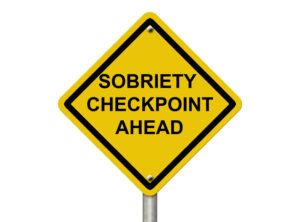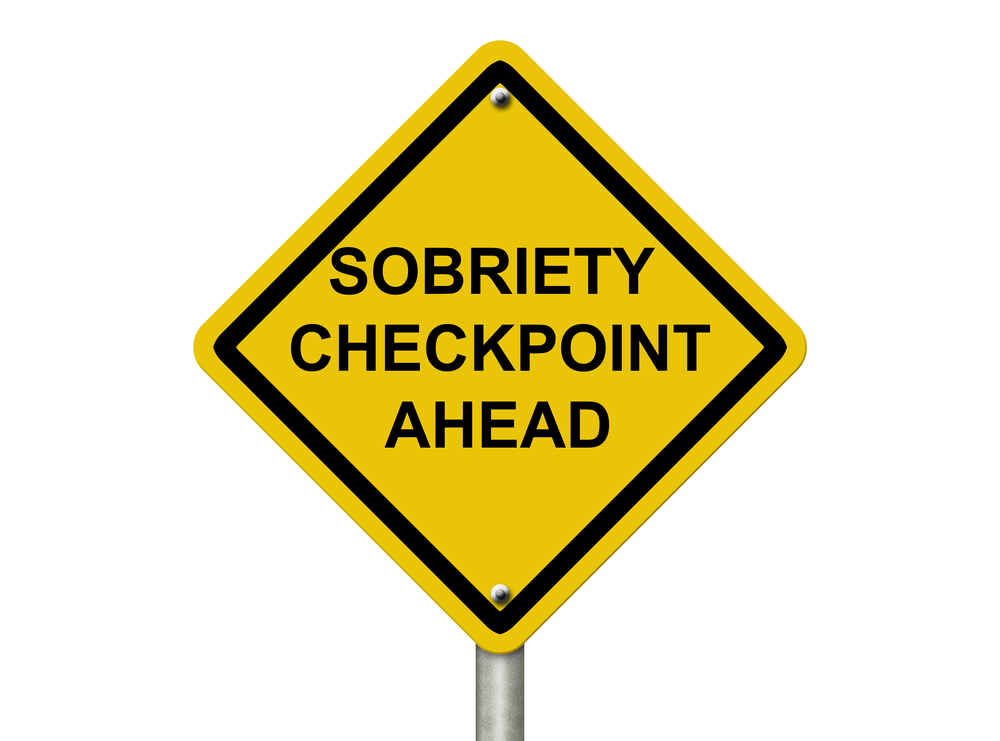NO PROBABLE CAUSE TO ARREST FOR OVI WHERE OFFICER SMELLED ALCOHOL AND DRIVER ADMITTED TO HAVING ONLY A FEW DRINKS
The Ohio Court of Appeals in State v. Hopp, 2016-Ohio-8027 held there is little indication of physical impairment where the state’s only evidence is:
- the officer smelled alcohol,
- the Defendant’s eyes were bloodshot,
- the Defendant acknowledged having only a couple drinks (scotches), and
- the Defendant’s speech was slightly slurred.
The Court found there was not sufficient evidence to cause a prudent person to believe that the Defendant was driving while impaired.

DRIVER STOPPED AT CHECKPOINT, FIELD SOBRIETY TESTS THROWN OUT
The Defendant was stopped at a checkpoint designed to screen for drivers who may be operating a motor vehicle under the influence of alcohol (OVI). While stopped, the officer noticed the Defendant’s vehicle smelled like alcohol and the Defendant’s speech was slightly slurred. The Defendant later admitted to consuming alcohol. The officer asked the Defendant to perform field sobriety tests, and the Defendant was placed under arrest for OVI following the officer’s conclusion that the Defendant failed the sobriety tests. At an evidence suppression hearing, the trial court determined the field sobriety tests were not conducted in accordance with accepted standards, but still found the officer had enough probable cause to arrest the defendant for OVI.
PROBABLE CAUSE TO ARREST IN OVI CASES
Probable cause exists to justify an arrest for OVI when at the time of arrest the officer had sufficient evidence derived from reasonable observations to cause a prudent person to believe the suspect was driving under the influence. State v. Homan, 89 Ohio St.3d 421, 427, 2000-Ohio-212, In Ohio, a person is not prohibited from driving after drinking alcohol, but may not drive when impaired by alcohol. State v. Taylor, 3 Ohio App.3d 197, 198. The Court in Taylor states, “For better or worse, the law prohibits drunken driving, not driving after a drink.”
WHEN OFFICER ONLY HAS EVIDENCE OF ALCOHOL CONSUMPTION
Ohio courts have stated it is possible to have a valid arrest for driving under the influence of alcohol even though the arresting officer has not actually observed the arrestee operating a vehicle in an erratic or unsafe manner. State v. Snider, 9th Dist. Medina No. 2924-M, 1999 WL 548975, *3, fn. 3 (July 28, 1999) However, the Ohio Court of Appeals held in State v. Finch, 24 Ohio App.3d 38, 40 (12th Dist. 1985), that observations of the driver’s appearance, smell of alcohol, slurred speech, and bloodshot eyes, were insufficient to constitute probable cause for arrest. In that case, there was no indication that the defendant was impaired by his consumption of alcohol. Similarly, in the Hopp case, the officer stopped the driver at a checkpoint – there was evidence of erratic driving. The Court in Hopp went on to say that although there was no probable cause here, there may be future cases where slurred speech, odor of alcohol and other observations of alcohol consumption could create probable cause for arrest. Ultimately the court stated: “Based upon the totality of facts and circumstances of this particular case, we conclude that there was not sufficient evidence to cause a prudent person to believe that [the Defendant] was driving while impaired.”
IMPORTANCE OF CHALLENGING FIELD SOBRIETY & BREATH TESTS
This case highlights the importance of challenging field sobriety, breath and other chemical tests in court. If your attorney is able to get field sobriety tests or chemical tests thrown out at the motion to suppress stage, there may be an issue with whether there was in fact probable cause to arrest.



